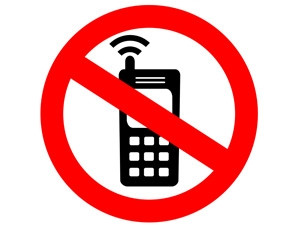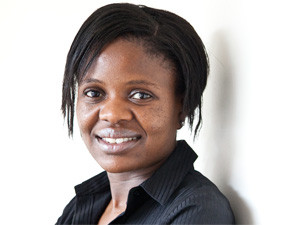
The National Association of School Governing Bodies (NASGB) says it is making "great strides" in its campaign to have a complete cellphone ban implemented in South African schools.
The association has been rallying to have cellphones banned in schools for more than a year, but has faced criticism from some who believe such a ban will be counter-productive.
NASGB general secretary Matakanye Matakanye says the association has mobilised school governing bodies, school management teams, parents and communities via a vigorous media campaign to provide support to the cause.
"The campaign found desired responses from schools and the general community. Many schools are already enforcing the campaign, with marked success in public schools," says Matakanye.
He says the NASGB is pushing to have the matter finalised by the end of the current school governing bodies' term of office, which is the middle of the 2015 academic year.
The NASGB believes a cellphone ban in schools will help curb disruptions in the classroom, provide more control over learners' unlimited access to harmful information, and discourage theft among learners, says Matakanye.
"A cellphone ban [will also limit] use of social media by learners who communicate during lessons and the taking of pictures - sometime exposing genitals - and circulating such pictures within the schools and communities," he says. "If such pictures go viral, it leads to irretrievable damage to people's dignity."
Many schools are already enforcing the campaign, with marked success in public schools, says NASGB general secretary Matakanye Matakanye.
Despite the modern-day e-learning boom and increased use of technology in the classroom, a cellphone ban is still necessary, says Matakanye. "We believe the department [of education] must ensure that e-learning should be coupled with introduction of devices with relevant applications to facilitate the learning process with corresponding restrictions in respect of access to irrelevant information. This should be possible within the context of private public partnerships."
Proper
Spiwe Chireka, senior telecoms analyst at IDC, says while a complete ban of cellphones in schools will be impractical with the move towards e-learning, there is a need to have cellphone use in schools regulated.

"The time has come for school governing bodies and other entities to enforce proper well-defined regulations for the use of cellphones. Instead of banning them completely, we need rules for when and where mobile phones may be used," says Chireka.
She agrees that cellphones can be disruptive in schools, just as much as in the workplace. "We've all sat in a meeting where someone is talking, but everyone is looking at their phones. We don't want to see the same thing in classrooms."
Chireka says schools should meet parents halfway in monitoring learners' cellphone use. "Schools don't really have well-defined policies when it comes to cellphone use, but both sides have to come to the party. Parents can only do so much; schools now need to have proper regulations in place."
Share